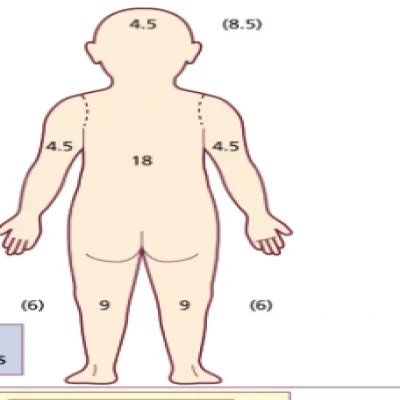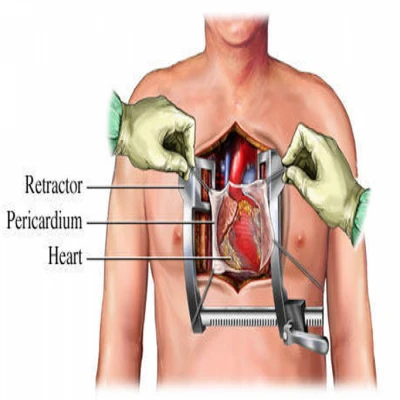مجلات علمية

Drugs for heart conditions
Heart disease is treated with a variety of medications. It's crucial for persons with heart problems and those who care for them to know their medications, read the labels, and be aware of any potential side effects1.
Drugs can help manage your pains, and forestall or treat a heart condition.
They're all various yet your PCP, drug specialist or medical caretaker will select the one probably going to be protected and powerful for your condition2.
The following are the ones that most people with heart problems are prescribed by their physicians2:
· Pro inhibitors (angiotensin-changing over chemical inhibitors)
· Angiotensin-II bad guys/Angiotensin receptor-blockers (ARBs)
· ARNi (angiotensin-II receptor-neprilysin inhibitor)
· Antiarrhythmic meds
· Anticoagulant meds
· Antiplatelet meds
· Beta-blockers
· Calcium channel blockers
· Cholesterol-bringing down meds (lipid-bringing down medications, for example, statins
High cholesterol is more common in some persons due to their heredity. To reduce the risk of artery hardening, these people may require medication therapy, such as statins, in addition to a healthy diet (also called atherosclerosis)2.
· Digoxin
· Diuretics
· Nitrates
Depending on your health, you may potentially be taking multiple medications.
Is it necessary to take aspirin to avoid a heart attack3?
Recommendation by the American Heart Association (AHA)
AHA has recommended that without consulting your doctor, you should not take day by day low dose aspirin all alone. Each person's risks and benefits are different.
If you've had a stroke or heart attack, your physician might recommend that you take a low-dose aspirin every day to help avoid another. For patients who have had a heart attack, aspirin is part of a very well therapy approach. Always stick to the treatment programmes that your doctor has prescribed for you.
Aspirin lowers blood pressure, which can lead to a variety of problems. If any of these situations apply to you, speak with your doctor. If you have any of the following conditions, you should not take daily low-dose aspirin without first consulting your doctor:
· Have an ibuprofen hypersensitivity or narrow mindedness
· Are in danger for gastrointestinal draining or hemorrhagic stroke
· Drink liquor routinely
· Are going through any basic clinical or dental methods
· Are beyond 70 years old
There is a danger of stomach issues, including stomach dying, for individuals who take headache medicine consistently. Liquor use can build these stomach hazards. In case you are told to take ibuprofen, inquire as to whether it is ok for you to savor liquor balance.
Individuals with diabetes who don't have a background marked by coronary failure or stroke should not have to take anti-inflamatory medicine treatment, except if their medical care suppliers explicitly suggest it as a component of the general therapy plan3.
Knowing how to use your heart medicine
It's critical to understand what you're taking, why you're taking it, and how it'll influence your health. Talk to your doctor about the following when you get a new prescription2:
· the drug recommended for yourself as well as its latent capacity benefits and hazards
· step by step instructions to take it securely
· when to take it
· conceivable incidental effects and what to do in the event that you notice any
· Taking different sorts of medication simultaneously, including any over-the-counter meds or enhancements.
Side effects of the heart medicine:
All drugs have the potential to have side effects, although these are usually transient and disappear within a short period of time. Not everyone has adverse effects, and you might not have any at all.
It's critical to continue taking your medication if you're suffering adverse effects, but you should also speak with your doctor or consultant about it. To improve the side effects you're having, they can modify the dosage or prescribe a new medicine.
Even if you feel better, keep taking your prescription medication because stopping it could make your illness worse2.
Medicines for heart disease that dilate small blood arteries may cause dizziness. If this occurs when you move or get out of bed, take a few minutes to rest or lie down. This aids in the elevation of blood pressure. Carefully stand up once you're ready.
Coughing may be a side effect of ACE inhibitors. If this keeps you awake at night or interferes with your everyday activities, tell your doctor.
You urinate more when you use diuretics (water tablets). If you just require one dose per day, use it first thing in the morning. Choose another dose in the late afternoon if you're getting two a day. You won't have to pee as frequently during the night, allowing you to get a sufficient amount of sleep.
What is the best way to take heart medications?
Medicines for the heart come in a variety of shapes and sizes. The following are the most common:
· Tablets or pills - These must be eaten whole or dissolved in water in some cases. Keeping the tablet under your tongue until it dissolves is sometimes necessary.
· The drug is sprayed under your tongue using an aerosol spray.
· Self-adhesive patch — A patch containing your medicine is applied to your skin and slowly absorbed into your system.
You may notice that your drugs are labelled and packaged differently by different manufacturers. If you have any questions, always consult your pharmacist.
When do I need to begin taking my drug?
The majority of drugs must be taken on a regular basis. When you have a symptom like angina, you'll need to take some of these. Always pay attention to your doctor's advice.
If you miss a dosage, consult the medication's information leaflet for instructions. You should usually take it as soon as you remember it.
If your next dose is approaching, you might have to skirt the one you missed and take the following portion at its planned time. Never take a twofold portion.
Conditions for taking medicines:
· Angina is chest pain or discomfort, as well as difficulty breathing.
· High blood pressure, often known as hypertension, is caused by a problem in a coronary artery.
· insufficiency of the heart - when the heart's main pumping activity isn't performing along with it should
· A heart rhythm that is too weak, too rapid, or abnormal is known as arrhythmia. For more information about arrhythmias, visit Chest Heart & Stroke Scotland.
· If one or more of the heart's four valves become diseased or damaged, this is known as heart valve disease. For more information on heart valve disorders, visit Chest Heart & Stroke Scotland.
· High blood cholesterol levels, commonly known as hypercholesterolemia, raise the risk of heart disease if undiagnosed.
What is the best way to store my drug?
Keep your medication in a cold, dry location, such as your bedside cupboard.
Do not leave your drug in direct sunlight on a windowsill or in your vehicle.
Put your medicine out of the reach of kids and pets at all times.
Put your medicine in its original container as much as possible to protect it and make note of how much you've taken.
If the colour, structure, or odour of your drug has transformed, don't take it. If you have any old or unused medications, bring them to your pharmacist, who will start getting rid of them safely.
Your medications will be determined by your cardiac condition. Drugs are prescribed based on your specific needs. The best source of information on your medicines and what they're for is your doctor or drugstore4.
Never too late to adopt healthy lifestyle changes like stopping smoking, having more nutritious meals, getting more exercise and save to have the medicines in time. Those were the first line of protection in the occurrence of a cardiac arrest.
References
· https://www.webmd.com/heart-disease/common-medicine-heart-disease-patients
· https://www.bhf.org.uk/informationsupport/treatments/medication
· https://www.heartfoundation.org.au/recovery-and-support/heart-attack-medication






